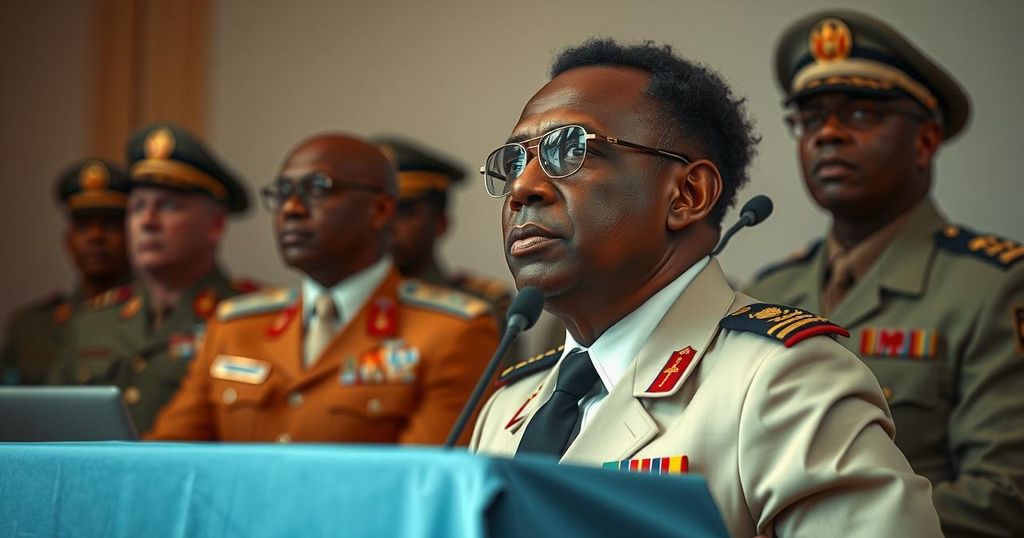Chad is conducting legislative, provincial, and local elections after three years of military rule, with opposition candidates boycotting due to allegations of fraud in past elections. The current electoral process is marked by serious accusations of voter manipulation and security challenges, raising questions about the legitimacy of the polls.
Chad has commenced a series of elections encompassing legislative, provincial, and local levels, following three years of military governance. The electoral process, touted by the government as a culminating phase of a political transition, is marred by a boycott from opposition factions, who contest the legitimacy of last year’s presidential election. This boycott permits candidates aligned with Marshal Mahamat Idriss Itno, the military leader who ascended to power in 2021, to dominate the electoral landscape without effective competition.
Opposition leader Succes Masra has ardently denounced the electoral process, expressing through social media that it is preferable for citizens to abstain from voting, as he asserts that the elections are undermined by dishonesty and electoral malpractice. “The fabricated results are already in the computers,” he proclaimed, highlighting the pervasive skepticism around the electoral integrity. Furthermore, the Democratic Party of the Chadian People reported the mysterious disappearance of over a thousand ballots designated for Bongor, raising alarms about potential electoral fraud.
The voting procedure is ongoing amidst increasing threats from Boko Haram in the Lake Chad region and tensions resulting from the cessation of a military accord with France. Marshal Itno’s administration characterizes the elections as foundational for the restoration of democratic order, succeeding the rule of his late father, who maintained power for 30 years. Despite the government’s efforts to generate public enthusiasm for the elections, a news blackout due to a strike by online journalists protesting restrictions has diluted coverage, leaving the opposition to voice their grievances largely unheard through traditional media channels.
Chad has faced significant political upheaval in recent years, transitioning from a long-standing autocracy under Idriss Deby Itno to military rule following his death in 2021. The subsequent leadership of his son, Mahamat Idriss Itno, has been characterized by allegations of electoral misconduct and increasing repression of dissent. The current elections are being conducted under the cloud of opposition boycotts, accusations of fraud, and persistent security threats from extremist groups, complicating the nation’s move towards stability and democracy. The historical context of electoral delay due to various crises, including jihadist activities and the COVID-19 pandemic, further exacerbates the challenges faced during this electoral period, marking it as a crucial juncture in Chad’s political evolution.
In summary, Chad’s elections represent a pivotal moment in its efforts to transition from military rule to a democratic governance structure. However, the boycott by opposition groups casts a significant shadow over the credibility of the electoral outcomes. With allegations of preordained results and reports of ballot irregularities, the legitimacy of these elections remains in question. The ongoing security concerns and restricted media freedoms further underline the turbulent climate in which these elections are taking place, calling into further doubt the efficacy of the political transition. As the situation develops, the international community continues to watch closely to determine the implications for democracy and governance in Chad.
Original Source: www.france24.com






